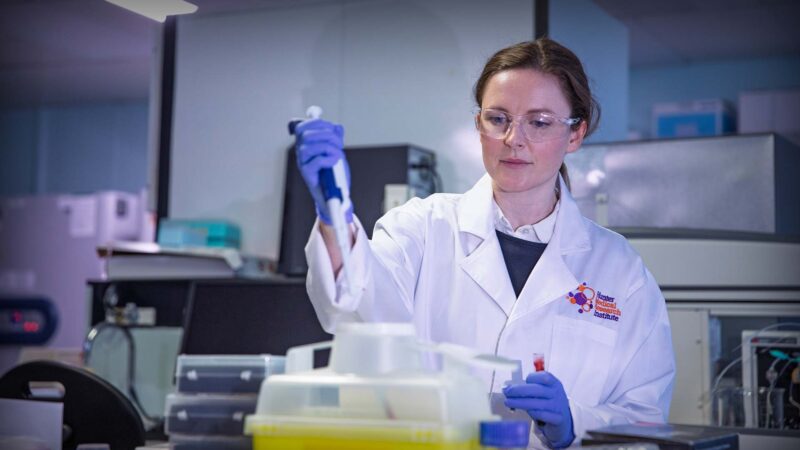NOVEL FORMS OF BRAIN STIMULATION & PSYCHEDELIC ASSISTED PSYCHOTHERAPY
With
Professor Paul Fitzgerald,
Director, School of Medicine and Psychology,
Australian National University, Canberra, Australia &
Principal Investigator, Paratus Clinical, Australia
RESEARCHER PROFILE
Filmed in Canberra, Australia | November 2025
Professor Paul Fitzgerald is the Head of the School of Medicine and Psychology at the Australian National University. He is an academic psychiatrist with a MBBS degree, Masters of Psychological Medicine and research PhD.
He has conducted an extensive range of experimental studies and clinical trials, focused on the development of novel treatment options for patients with mental health conditions such as depression, schizophrenia, obsessive compulsive disorder, PTSD, autism and Alzheimer’s disease.
Professor Fitzgerald has a special interest in repetitive transcranial magnetic stimulation (rTMS) and other novel treatments using forms of non-invasive brain stimulation. He has had continual NHMRC grant support for 20 years and over $10 million in research support in the last 5 years. He has published several books, over 550 journal articles and been cited over 30,000 times.
He has established multiple clinical rTMS services, founded several device and clinical service companies and led a national application to MSAC in the Federal Department of Health which resulted, in 2021, in Medicare funding ($280 million in year 1) for rTMS therapy for patients with depression.
Professor Fitzgerald currently leads an innovative school at the ANU which combines both the ANU Medical Program and former Research School of Psychology focussed on education and research approaches integrating perspectives across mind, body and culture.
Source: Supplied
You Might also like
-
Biomarkers for early sepsis detection
Dr Gabrielle Briggs is a biomedical scientist dedicated to finding smarter, faster ways to diagnose and treat life threatening complications in critically ill patients. Dr Briggs established a research laboratory embedded within the John Hunter Hospital – one of the busiest major trauma centres in NSW. Dr Briggs works alongside surgeons, intensivists, and pathologists to turn complex clinical problems into practical research solutions. Her work spans two major programs: developing a rapid diagnostic test to detect bacterial infections in blood before sepsis takes hold, and exploring mitochondrial transplantation as a novel therapy to rescue injured tissues after trauma and ischaemia.
-
Biostatistics in Clinical Trials
As a biostatistician working in research and clinical settings, Kate Francis plays a vital role in ensuring all projects adhere to best practice guidelines and are transparently reported. She has served as the lead statistician for the analysis of clinical trials across a broad range of subject areas, including neonatal resuscitation, BCG for allergy and infection, convulsive status epilepticus and her work has been published in the top journals such as The New England Journal of Medicine, JAMA, and The Lancet. Most recently she was awarded the 2025 Excellence in Trial Statistics Award for her work on the PLUSS trial.
-
Genomics and rationally targeted therapies in Acute Lymphoblastic Leukaemia
Prof Deborah White’s research focus is genomics and rationally targeted therapies in Acute Lymphoblastic Leukaemia (ALL) and Chronic Myeloid Leukaemia (CML) and she holds peer reviewed grants from: The William Lawrence and Blanche Hughes Foundation and the Leukemia Lymphoma Society (USA), the NHMRC, the Leukaemia Foundation Australia (LFA), Channel 7, Cancer Australia, Tour de Cure and the Cancer Council SA (CCSA). Professor White has presented more than 170 papers at scientific meetings, and authored more than 100 scientific publications as well as being an inventor on several international patents.

 https://orcid.org/0000-0003-4217-8096
https://orcid.org/0000-0003-4217-8096


